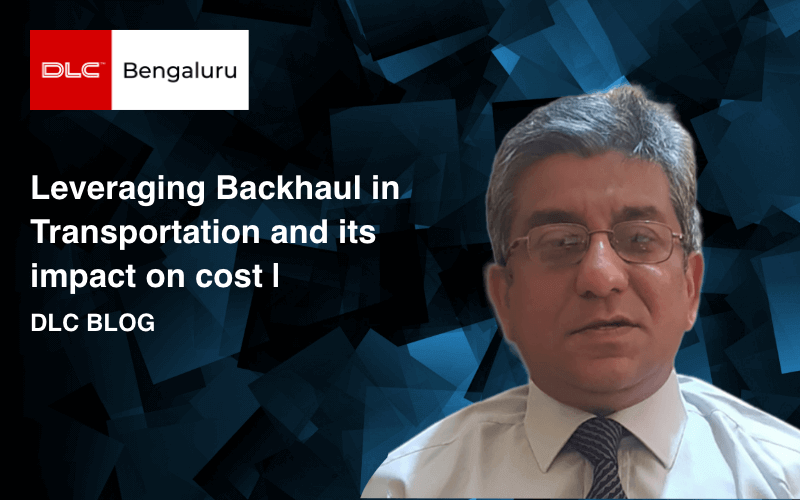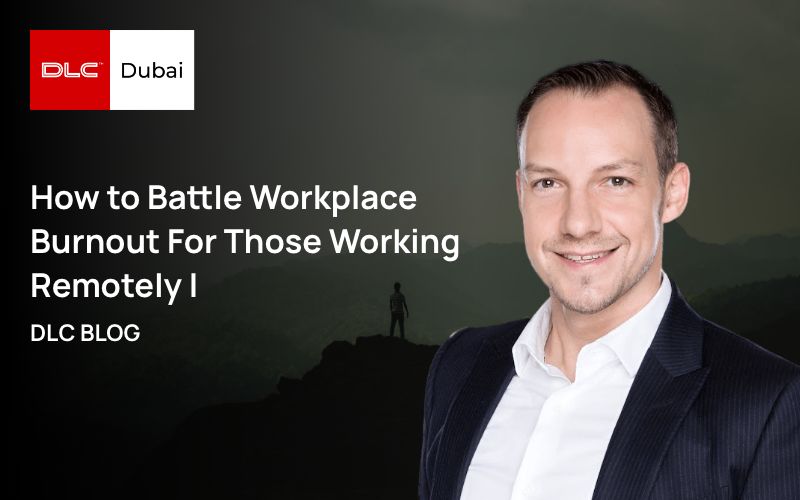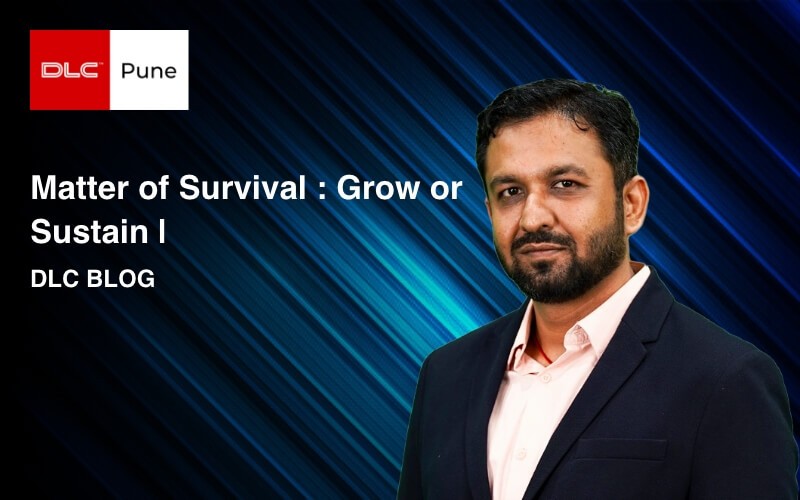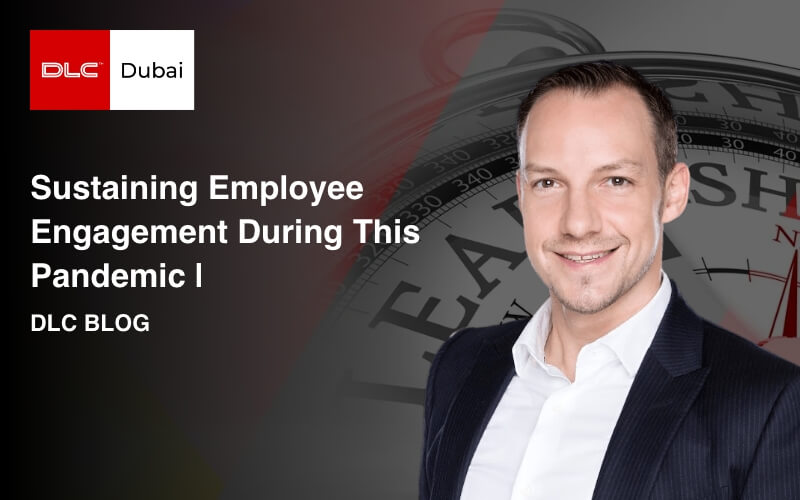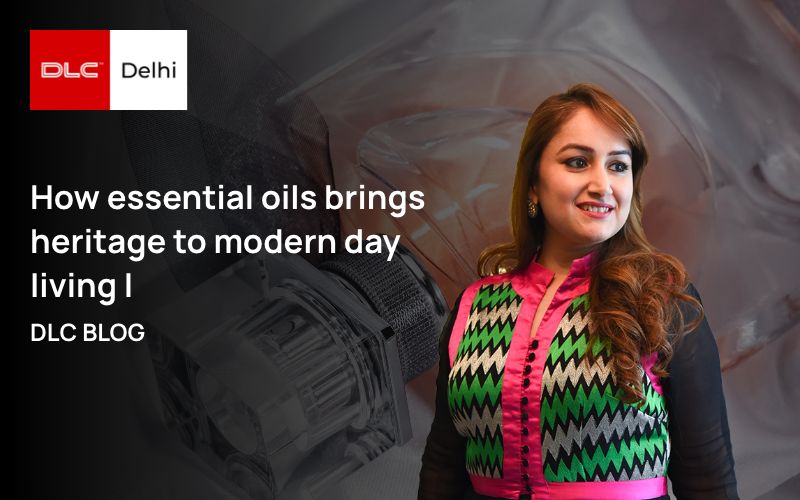
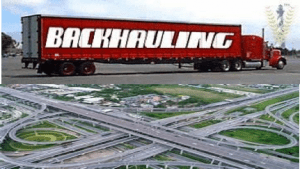 In fact, logistics system is very complex in nature. The importance of good logistic system is growing tremendously due to its practical importance and robustness. There are many challenges in logistic system like resiliency in logistic system i.e., how to reduce the severity and likelihood of disruptions in systems. An effective and efficient logistic system makes industry competitive and profitable.
In developing country, 90% of its industries are small and medium enterprises (SME). To achieve resiliency in logistics is considered the best way to reduce the severity and likelihood of logistic system disruption. In India, more than 60% cargo is being moved by road and half of its’ (32%) through rail. So, we need to be developed better systems to manage- to build resilience like visibility, control, flexibility and collaboration.
Visibility – Capable to track and monitor, even foresee the logistic events and patterns. This helps organization to address the issues in logistic system before becoming a problem Flexibility - Capability to respond quickly (Agile) to problems without much hike in operational cost. It optimizes the impact of a sudden shift or disruption.
Collaboration – Helps to build trust-based relationship with others
Control - Helps to ensure proper procedures and process which follows in the organisation by implementing robust policies, control mechanisms
Presently, many organisations are leveraging backhaul mechanism in their products distribution. In backhauling the trucks after delivering goods, returning to original destination in empty condition are being hired by another company and they are loading the vehicle with their product and shipped to the destination which will be near or on the way to the starting point of vehicle. The backhaul challenge in transportation is characterized by an imbalance in transport flows between two locations. A backhaul, as it relates to trucking capacity and logistics, is the return trip of a commercial truck that is transporting freight back over all or part of the same route it took to get to its current location. Empty trucks are not ideal for anyone in the supply chain and empty miles are expensive. They aren’t as safe to drive, put drivers at increased risk and they aren’t filled with product, so it drives up the cost in the supply chain in labour, empty miles and fuel emissions.
The concept of backhaul, or utilizing freight asset outbound to delivery point and back, has always been applauded in theory and stymied in practice by the logistical challenges of:
In fact, logistics system is very complex in nature. The importance of good logistic system is growing tremendously due to its practical importance and robustness. There are many challenges in logistic system like resiliency in logistic system i.e., how to reduce the severity and likelihood of disruptions in systems. An effective and efficient logistic system makes industry competitive and profitable.
In developing country, 90% of its industries are small and medium enterprises (SME). To achieve resiliency in logistics is considered the best way to reduce the severity and likelihood of logistic system disruption. In India, more than 60% cargo is being moved by road and half of its’ (32%) through rail. So, we need to be developed better systems to manage- to build resilience like visibility, control, flexibility and collaboration.
Visibility – Capable to track and monitor, even foresee the logistic events and patterns. This helps organization to address the issues in logistic system before becoming a problem Flexibility - Capability to respond quickly (Agile) to problems without much hike in operational cost. It optimizes the impact of a sudden shift or disruption.
Collaboration – Helps to build trust-based relationship with others
Control - Helps to ensure proper procedures and process which follows in the organisation by implementing robust policies, control mechanisms
Presently, many organisations are leveraging backhaul mechanism in their products distribution. In backhauling the trucks after delivering goods, returning to original destination in empty condition are being hired by another company and they are loading the vehicle with their product and shipped to the destination which will be near or on the way to the starting point of vehicle. The backhaul challenge in transportation is characterized by an imbalance in transport flows between two locations. A backhaul, as it relates to trucking capacity and logistics, is the return trip of a commercial truck that is transporting freight back over all or part of the same route it took to get to its current location. Empty trucks are not ideal for anyone in the supply chain and empty miles are expensive. They aren’t as safe to drive, put drivers at increased risk and they aren’t filled with product, so it drives up the cost in the supply chain in labour, empty miles and fuel emissions.
The concept of backhaul, or utilizing freight asset outbound to delivery point and back, has always been applauded in theory and stymied in practice by the logistical challenges of:
- Matching the supply with the demand in the specific lane;
- Collaborating with outside of existing trading partner relationships;
- Honouring the financial and contractual relationships established in the transportation market;
- Combination of demand and available truck types in particular lane
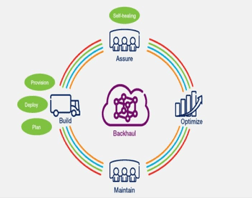 With transportation capacity more limited now than ever (industry estimates between 25-50 percent of the trucks are empty), optimizing all assets in our logistics network is paramount.
Backhaul or reverse optimization has been one of the much touted and anticipated impacts of technology in this industry, though we think that these network effects will take time to manifest itself in a more meaningful way. The idea behind network
optimization is to use technology and the data available on an extensive scale to enhance the efficiency of load matching, planning and routing.
For example, after travelling from point A to B, a truck might not be able to get an immediate load from B to A. This leads to idle time and revenue loss due to lower asset utilization. But with visibility over the larger network, one might be able to identify loads from B to C & C to A leading to better utilization of the asset (truck).
In theory everything sounds right but reality is tricky. The market is not so homogenous. There is variability in several factors including the type of truck required (body type, tyre type etc.) Further, aspects like route preference, and non-uniform distribution of demand/supply canters in the country make the network optimization a much more challenging problem which is yet to be solved.
Building for scale is one of the ways to reach network effect. However, given the heterogeneous distribution of demand and supply, building micro networks backed by technology might be an approach worth exploring. Identifying micro-networks where the variables of the supply chain can be controlled and driver behaviour can be influenced can help unlock network effects at a much smaller scale. Such networks would allow for better visibility of the supply chain and higher asset utilization.
Just to highlight the magnitude of impact, let’s consider an example. Today a long-haul truck in India has 12-17 billable days and spends the remaining time in loading/ unloading, maintenance, waiting for loads or doing sub-optimal loads. In the process, an average truck driver takes home anywhere between Rs 20,000 -Rs 30,000 after working 16 hours a day in very unpredictable and harsh working conditions. An optimized network with 20 to 24 days of utilization can help push up the revenue of these vehicles by about 40% to 60% and will at least double the income of the driver cum owners.
(*This is because, once a truck has been purchased, bulk of the cost is fixed cost for the driver cum owners in the form of EMI, insurance etc.)
I had an experience to explore optimized organisation’s freight cost by leveraging the backhaul. In the study, we had chosen two other organisations with us to make a cluster formation. Let say my organisations, manufacturing facilities had in south part of India, other two company’s either their manufacturing capacity or main hubs in West and North. For better understanding, denoting these 3 organisations – A, B and C. Let say, A had manufacturing facilities in South and distribute its’ products to West and North India, B had one production facility and Hub in Bhiwandi, West and similarly, C had Hub and manufacturing capacity in Western UP in North India. Before reverse auction of each lane, we took consideration of 3 organisations to and back monthly volumes and estimated future demand truck types. Based on these exhaustive working, we finalised transporters for each lane and did reverse auction. End of it, we procured 6% lower cost. Awarded freight agreement to business partners based on auction and intend to start business. But roughly a week later, we faced havoc service issues and ultimately, we had to force to withdraw the freight agreement and implement pre-auction freight and vendors to resume the business.
Although the concept is sacrosanct but when it back-fired we did self-introspection and certain points surfaced:
With transportation capacity more limited now than ever (industry estimates between 25-50 percent of the trucks are empty), optimizing all assets in our logistics network is paramount.
Backhaul or reverse optimization has been one of the much touted and anticipated impacts of technology in this industry, though we think that these network effects will take time to manifest itself in a more meaningful way. The idea behind network
optimization is to use technology and the data available on an extensive scale to enhance the efficiency of load matching, planning and routing.
For example, after travelling from point A to B, a truck might not be able to get an immediate load from B to A. This leads to idle time and revenue loss due to lower asset utilization. But with visibility over the larger network, one might be able to identify loads from B to C & C to A leading to better utilization of the asset (truck).
In theory everything sounds right but reality is tricky. The market is not so homogenous. There is variability in several factors including the type of truck required (body type, tyre type etc.) Further, aspects like route preference, and non-uniform distribution of demand/supply canters in the country make the network optimization a much more challenging problem which is yet to be solved.
Building for scale is one of the ways to reach network effect. However, given the heterogeneous distribution of demand and supply, building micro networks backed by technology might be an approach worth exploring. Identifying micro-networks where the variables of the supply chain can be controlled and driver behaviour can be influenced can help unlock network effects at a much smaller scale. Such networks would allow for better visibility of the supply chain and higher asset utilization.
Just to highlight the magnitude of impact, let’s consider an example. Today a long-haul truck in India has 12-17 billable days and spends the remaining time in loading/ unloading, maintenance, waiting for loads or doing sub-optimal loads. In the process, an average truck driver takes home anywhere between Rs 20,000 -Rs 30,000 after working 16 hours a day in very unpredictable and harsh working conditions. An optimized network with 20 to 24 days of utilization can help push up the revenue of these vehicles by about 40% to 60% and will at least double the income of the driver cum owners.
(*This is because, once a truck has been purchased, bulk of the cost is fixed cost for the driver cum owners in the form of EMI, insurance etc.)
I had an experience to explore optimized organisation’s freight cost by leveraging the backhaul. In the study, we had chosen two other organisations with us to make a cluster formation. Let say my organisations, manufacturing facilities had in south part of India, other two company’s either their manufacturing capacity or main hubs in West and North. For better understanding, denoting these 3 organisations – A, B and C. Let say, A had manufacturing facilities in South and distribute its’ products to West and North India, B had one production facility and Hub in Bhiwandi, West and similarly, C had Hub and manufacturing capacity in Western UP in North India. Before reverse auction of each lane, we took consideration of 3 organisations to and back monthly volumes and estimated future demand truck types. Based on these exhaustive working, we finalised transporters for each lane and did reverse auction. End of it, we procured 6% lower cost. Awarded freight agreement to business partners based on auction and intend to start business. But roughly a week later, we faced havoc service issues and ultimately, we had to force to withdraw the freight agreement and implement pre-auction freight and vendors to resume the business.
Although the concept is sacrosanct but when it back-fired we did self-introspection and certain points surfaced:
- The data shared by individual organisation like lane wise volume, truck types, freight cost, etc was not correct
- The wrong information shared by individual organisation in anticipation not to disclose market shares
- Post reverse auction, organisations had not made agreement with lowest quote transporters due to lack of confidence and less known each
- Make clusters with organisations who are predominantly in different business segments
- Before start process, all parties should sign NDA (Non-Disclosure Agreement), hence no-body will be hesitant to share correct information
- Pick the right industries so that mis match of truck types avoided; e.g. clusters should be avoided between Cement manufacturing company and Medium sizes FMCG company rather Paper and Cement manufacturing organisation would be ideal
- Process of reverse auction should be arranged in this manner so that at least one existing vendor should present in each lane, so organisations along with new get confidence to run business.
- Low volume lanes should be avoided to do reverse auction because my own experience sharing of business within 2-3 vendors, no-body will be
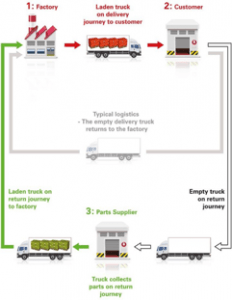 The level of backhaul discounting is obviously market-driven for the most part. In cases where fronthaul trips are destined to weak outbound markets, fleets must make the money on the outbound trip to compensate for the weaker return market.
Problem arises when this becomes entrenched in the psyche of a company's operations personnel. Not all markets exhibit excess capacity, but somehow all backhauls become eligible for steep discounts. In many cases, companies discount backhauls rates by 40% or more. This discounting presents the shipping public with an unconscious and unrealistic view of the company's overall service value.
It is a sobering fact that, even with driver shortages and capacity constraints, more than 20% of truck miles are driven empty. It may be more sobering to contemplate that the empty percentage number should possibly be higher.
One key performance indicator (KPI) that determines good trips from bad for most companies is the percent of empty miles to total distance travelled.
A good counter to the percent of empty miles is total revenue per day per truck. This KPI introduces time into the equation. It makes no sense for a company to accept a load that parks a truck for too long. Companies need to achieve a balance between these two metrics to increase profitability. This is all basic business. But companies should take a fresh look into how this plays out as it relates to getting drivers’ home.
One of the best way companies can minimize the effects of hauling out of a weak market is to utilize the closest stronger market as a springboard. For example, they may have to take less per mile to get out of small town, but the rates out of Metro or Industrial Town are much better. Ideally, they would take a shorter trip to Metro City at depressed market rates to minimize the impact of the low rate. Once in the better market, companies can take advantage of higher rates for a greater percentage of the haul.
It often works out that a deadhead into the better market is the best option for the company's business. This may seem onerous since operations has to deal with at least two transactions instead of one, but technology exists to automate this decision process for the team and even optimize to preferred KPI. There is potential to sharply increase profitability. The cost of that increase is the backhaul mindset.
Yes, drivers need to get home on a predictable schedule and this sometimes requires fleets to make tough decisions to maintain a dependable workforce. Carrier companies can stop depressing the overall market (and therefore driver's wages) by negotiating against themselves from the outset. The concept of backhauls taints how the value of capacity is calculated and has made some fleets lazy in their operations. Stop calling it a backhaul and get the fleets on board.
The level of backhaul discounting is obviously market-driven for the most part. In cases where fronthaul trips are destined to weak outbound markets, fleets must make the money on the outbound trip to compensate for the weaker return market.
Problem arises when this becomes entrenched in the psyche of a company's operations personnel. Not all markets exhibit excess capacity, but somehow all backhauls become eligible for steep discounts. In many cases, companies discount backhauls rates by 40% or more. This discounting presents the shipping public with an unconscious and unrealistic view of the company's overall service value.
It is a sobering fact that, even with driver shortages and capacity constraints, more than 20% of truck miles are driven empty. It may be more sobering to contemplate that the empty percentage number should possibly be higher.
One key performance indicator (KPI) that determines good trips from bad for most companies is the percent of empty miles to total distance travelled.
A good counter to the percent of empty miles is total revenue per day per truck. This KPI introduces time into the equation. It makes no sense for a company to accept a load that parks a truck for too long. Companies need to achieve a balance between these two metrics to increase profitability. This is all basic business. But companies should take a fresh look into how this plays out as it relates to getting drivers’ home.
One of the best way companies can minimize the effects of hauling out of a weak market is to utilize the closest stronger market as a springboard. For example, they may have to take less per mile to get out of small town, but the rates out of Metro or Industrial Town are much better. Ideally, they would take a shorter trip to Metro City at depressed market rates to minimize the impact of the low rate. Once in the better market, companies can take advantage of higher rates for a greater percentage of the haul.
It often works out that a deadhead into the better market is the best option for the company's business. This may seem onerous since operations has to deal with at least two transactions instead of one, but technology exists to automate this decision process for the team and even optimize to preferred KPI. There is potential to sharply increase profitability. The cost of that increase is the backhaul mindset.
Yes, drivers need to get home on a predictable schedule and this sometimes requires fleets to make tough decisions to maintain a dependable workforce. Carrier companies can stop depressing the overall market (and therefore driver's wages) by negotiating against themselves from the outset. The concept of backhauls taints how the value of capacity is calculated and has made some fleets lazy in their operations. Stop calling it a backhaul and get the fleets on board.
Syamaprasad De, Managing Partner of Versatile Ventures recently launched its flagship brand Vishvarup – The Fragrance in Devotion in incense sticks segment. A life member of The Chartered Institute of Logistics and Transport (India) and a Supply Chain Professional, did his PGDBM from Lal Bahadur Shastri Institute, New Delhi, with two and half decades in corporate world, to set up their End-2-End Supply Chain Process, Business Plan and Strategy, Standard Operating Process.
Want to connect ?



























